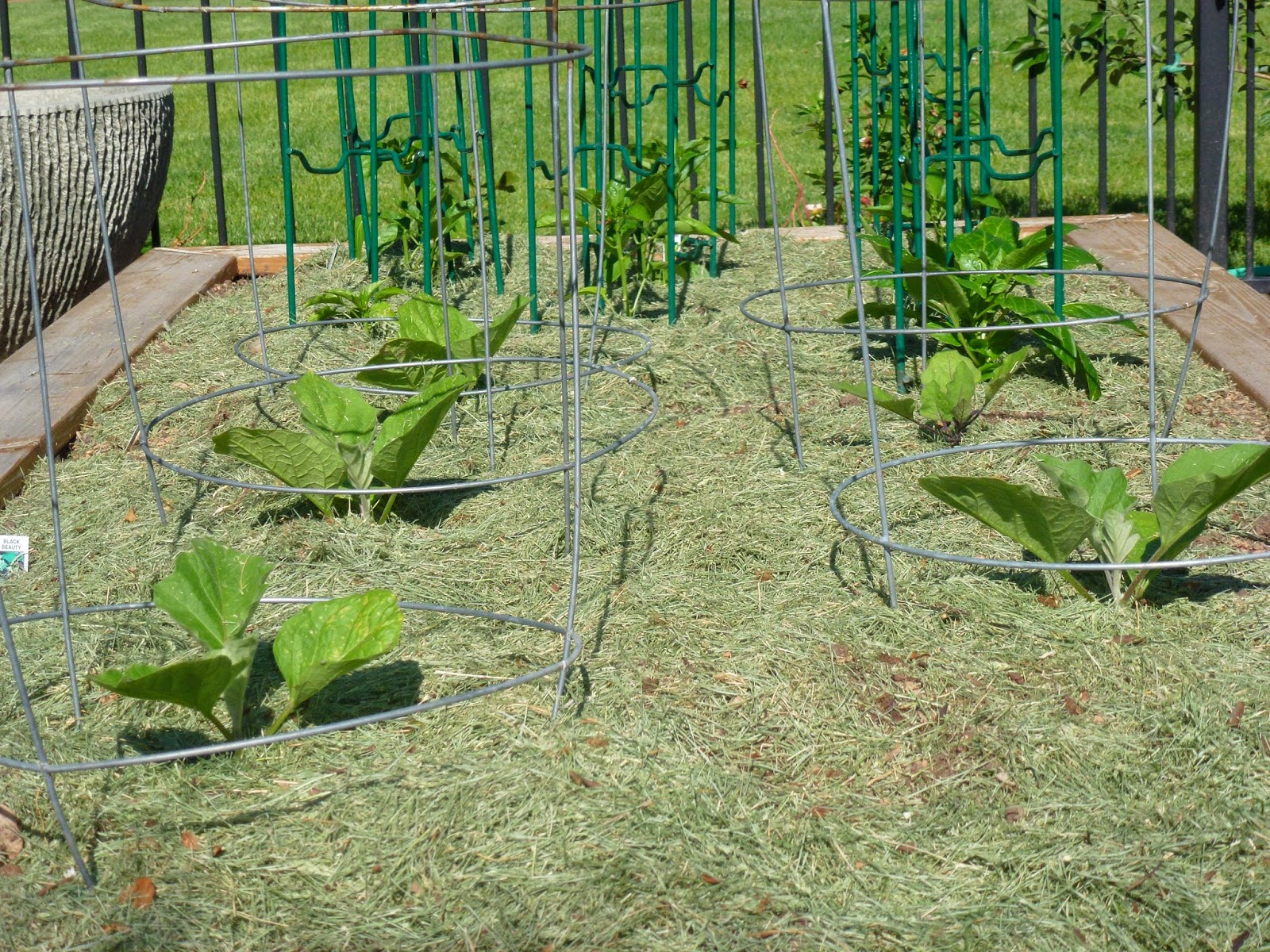My guess is that many gardeners are on their second planting of tomatoes, peppers and other warm-season vegetables. The first batch may have been damaged by hail or cold nights. It's been a rough spring along the Front Range so help your plants get growing by using the best cultural methods - water deeply, not frequently so roots grow down into the soil. Fertilize early in the season, then mid-season before fruiting and mulch. Mulch matters for several reasons. Unless your soil is perfect, you'll need mulch to keep it from cracking and drying out in between watering. Mulch keeps weeds down and soil temperatures evenly cool and holds moisture. Mulch prevents soil and water from splashing up to the plant bottoms, which can lead to disease conditions. There is simply no downside to mulching vegetables or your entire landscape.
I prefer chemical-free grass clippings and or chopped up leaves (if any are left from last fall). Some years I use newspapers (4-6 layers or so) around the plants, then cover with clippings or leaves. The newspaper breaks down over the summer and does a super job as mulch. Weed-free straw or hay works well too, but I don't have close sources for either living in central Denver. I'm not a fan of plastic, only using it early in the season to warm the beds. I renew the mulch as needed, never letting it pack down too densely to prevent water from passing through.
Read more about mulches for vegetable gardens on this link - http://www.ext.colostate.edu/mg/gardennotes/715.html or for the landscape - http://www.ext.colostate.edu/pubs/garden/07214.html


No comments:
Post a Comment
Note: Only a member of this blog may post a comment.